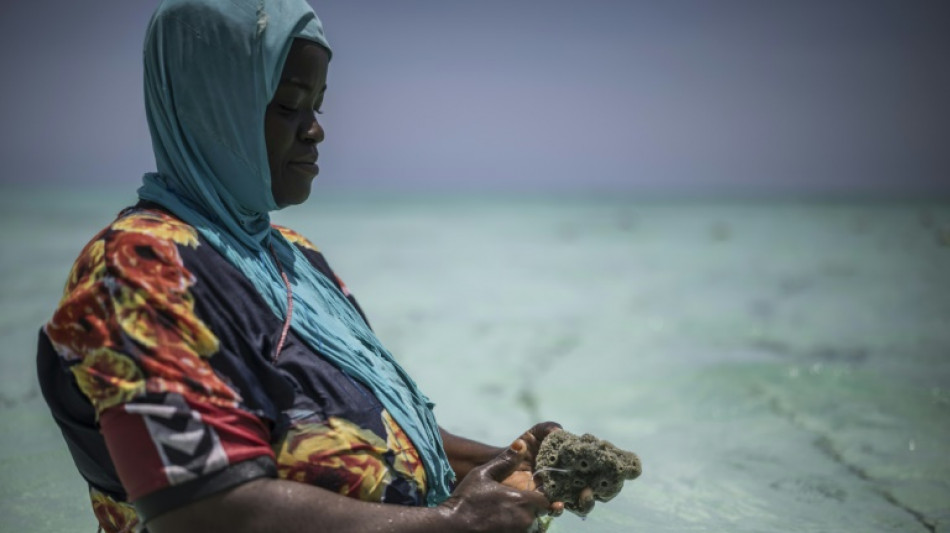
-
 South Africa's Bavuma says winning in India top ambition
South Africa's Bavuma says winning in India top ambition
-
Alldritt back to captain France against Fiji after South Africa loss

-
 Juan Ponce Enrile, architect of Philippine martial law, dies at 101: daughter
Juan Ponce Enrile, architect of Philippine martial law, dies at 101: daughter
-
'Ready' Rees-Zammit back in Wales's starting team to face Japan

-
 Spinners decide Tests in India, Gill says before South Africa opener
Spinners decide Tests in India, Gill says before South Africa opener
-
K-pop group NewJeans ends feud with record label ADOR

-
 Asian stocks rise with focus on Fed, tech as US government reopens
Asian stocks rise with focus on Fed, tech as US government reopens
-
UK economic gloom deepens before budget

-
 Scott Barrett returns to skipper All Blacks against England
Scott Barrett returns to skipper All Blacks against England
-
Burberry narrows first half loss on turnaround plan

-
 Sri Lanka to stay in Pakistan after bomb, games move to Rawalpindi
Sri Lanka to stay in Pakistan after bomb, games move to Rawalpindi
-
Zanzibar women turn to sponge farming as oceans heat up
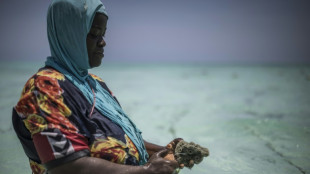
-
 Stocks rise with focus on Fed, tech as US government reopens
Stocks rise with focus on Fed, tech as US government reopens
-
Curry lifts Warriors over Spurs, Thunder rout Lakers, Jokic shines

-
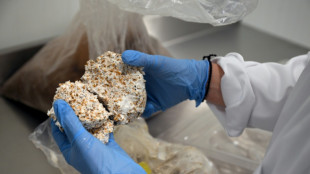 Mushroom material takes on plastic packaging at Belgian start-up
Mushroom material takes on plastic packaging at Belgian start-up
-
India's top tennis player says denied China visa

-
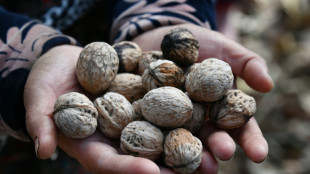 In Kyrgyzstan, world's largest natural walnut forest thins away
In Kyrgyzstan, world's largest natural walnut forest thins away
-
TV soaps and diplomacy as Bangladesh and Turkey grow closer

-
 Striking Boeing defense workers to vote on latest contract
Striking Boeing defense workers to vote on latest contract
-
Australia's opposition ditches commitment to net zero emissions

-
 Duffy takes four as New Zealand crush West Indies to seal T20 series
Duffy takes four as New Zealand crush West Indies to seal T20 series
-
South Korea halts flights for college entry exam

-
 Trump signs bill to end record-breaking US shutdown
Trump signs bill to end record-breaking US shutdown
-
EU lawmakers to vote on unpicking green business rules

-
 Smith says England speed kings could struggle in Ashes
Smith says England speed kings could struggle in Ashes
-
Stocks stutter with focus on Fed, tech after US reopen vote

-
 Record-breaking US shutdown ends as political fallout begins
Record-breaking US shutdown ends as political fallout begins
-
France marks decade since harrowing Paris attacks

-
 Skubal, Skenes win MLB Cy Young Awards for top pitchers
Skubal, Skenes win MLB Cy Young Awards for top pitchers
-
Record rains turn Argentina's farm-filled Pampas plains to wetlands
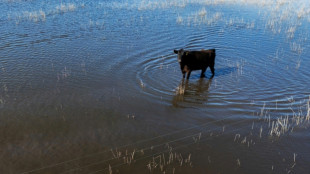
-
 Solar storm brings new chance of vivid auroras, signal disruptions
Solar storm brings new chance of vivid auroras, signal disruptions
-
Gauff and Fritz back for United Cup against Swiatek's Poland

-
 World's fossil fuel emissions to hit new record in 2025: study
World's fossil fuel emissions to hit new record in 2025: study
-
US jury: Boeing owes $28 mn to family of Ethiopian Airlines crash victim

-
 G7 calls for urgent Ukraine ceasefire, de-escalation in Sudan
G7 calls for urgent Ukraine ceasefire, de-escalation in Sudan
-
Bayern stun Arsenal, Man Utd sink PSG in Women's Champions League

-
 New Epstein emails claim Trump 'knew about the girls'
New Epstein emails claim Trump 'knew about the girls'
-
Brazil tribal chief ready to give Lula a 'talking-to'

-
 Clippers' Beal to have season-ending surgery - report
Clippers' Beal to have season-ending surgery - report
-
Dow ends at record on hopes US government will reopen

-
 Portugal's Ronaldo hoping Ireland fans boo him
Portugal's Ronaldo hoping Ireland fans boo him
-
England set for Etihad start to Euro 2028 tournament campaign

-
 Sinner cruises past Zverev and into last four of ATP Finals
Sinner cruises past Zverev and into last four of ATP Finals
-
US presses final penny after more than 230 years

-
 Baxter says England must be 'selfless' to see off All Blacks
Baxter says England must be 'selfless' to see off All Blacks
-
Pardoned French-Algerian writer Sansal arrives in Germany

-
 Bayern battle back to shock Arsenal in Women's Champions League
Bayern battle back to shock Arsenal in Women's Champions League
-
China hopes US will 'some day' return to climate fold, official tells AFP
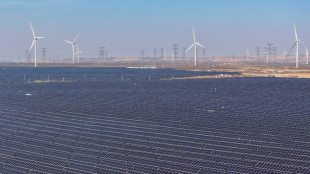
-
 Trump 'knew about the girls,' new Epstein emails claim
Trump 'knew about the girls,' new Epstein emails claim
-
Scotland 'optimistic' Russell will be fit to face Argentina


Zanzibar women turn to sponge farming as oceans heat up
Around 10 in the morning each day, women in hijabs and loose long dresses wade through Zanzibar's turquoise shallow tides to tend their sponge farms -- a new lifeline after climate change upended their former work.
Rising ocean temperatures, overfishing, and pollution have steadily degraded marine ecosystems around the island, undermining a key source of income for locals in Jambiani village who long depended on farming seaweed.
Instead, they have turned to sponge cultivation under a project set up by Swiss NGO Marine Cultures.
Hot temperatures have killed seaweed, and declining fish stocks have driven many fishermen to quit, said project manager Ali Mahmudi.
But sponges -- which provide shelter and food for sea creatures -- tend to thrive in warmer waters.
They are also lucrative as an organic personal care product, used for skin exfoliation. Depending on size, they can fetch up to $30 each and a single farm can have as many as 1,500 sponges.
From the shore, black sticks can be seen jutting out of the water, holding lines of sponges.
"I was shocked to learn that sponges exist in the ocean," Nasiri Hassan Haji, 53, told AFP, recalling when she first learned about the practice more than a decade ago.
The mother-of-four once farmed seaweed, describing the work as labour-intensive with meagre returns.
In 2009, Marine Cultures launched a pilot farm with widowed women in Jambiani to test their potential in the archipelago, where more than a quarter of the 1.9 million population live below the poverty line.
With demand for eco-friendly products on the rise, the market has grown steadily, with the US National Oceanic and Atmospheric Administration estimating the value of the natural sponge market at $20 million in 2020.
"It has changed my life, I have been able to build my own house," said 53-year-old Shemsa Abbasi Suleiman, smiling with pride.
Many other women have now joined a cooperative to expand the project, but it was not always smooth sailing.
"At first I was afraid of getting into it because I did not know how to swim. Many discouraged me saying the water is too much and I will die," said Haji.
Thanks to an NGO programme, she learned to swim at the age of 39.
- Sponges restore coral reefs -
As well as making money for locals, sponges are beneficial to the marine environment.
Studies show that a sponge's skeletal structure aids carbon recycling within coral reef ecosystems, while its porous body naturally filters and purifies seawater.
An estimated 60 percent of the world's marine ecosystems have been degraded or are being used unsustainably, according to the United Nations, which warns that the "ocean is in deep crisis".
Sponges are also known to help restore coral reefs, which support 25 percent of marine life and are currently under threat.
"What attracted me to this is the fact that we are not destroying the environment," said Haji.
R.Halabi--SF-PST
